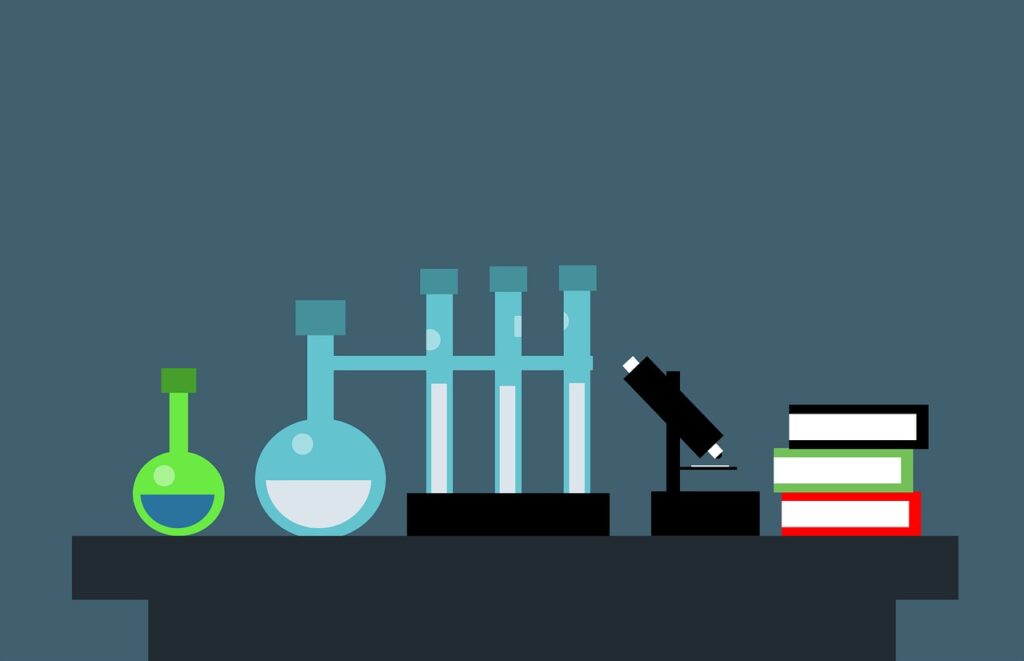What is Applied Chemistry:
Applied chemistry is the application of chemistry’s principles and theories to practical problems and real-world situations. It includes using chemical knowledge to create new materials, improve existing products and processes, and solve environmental and health-related problems.
Applied chemistry has a wide range of applications, from developing new pharmaceuticals and materials to producing food, energy, and consumer goods. This includes analytical chemistry, biochemistry, environmental chemistry, materials science, and many other disciplines.
A career in applied chemistry includes
- The development of new drugs for disease treatment
- The design of more efficient and sustainable manufacturing processes
- The creation of new materials with unique properties
- The development of environmentally friendly technologies for waste management and pollution control.
What does an applied chemist do:
Applied chemists apply chemical principles to real-world challenges in industries like pharmaceuticals, materials science, energy, and environmental science. Here are some examples of the work of an applied chemist:
- Research to create new materials or drugs, improve manufacturing processes, or find ways to reduce waste or environmental impact.
- They work in quality control labs to ensure products meet certain quality standards by analyzing their chemical properties and composition.
- Supervise the production of chemicals, pharmaceuticals, or other products, troubleshoot issues, and optimize the process to increase yield or reduce costs.
- Examine samples for characteristics such as purity, potency, and toxicity.
- In sales and marketing roles, chemists may communicate product benefits, assist in marketing strategies, and represent chemical or pharmaceutical companies.
- Pharmaceuticals, materials science, energy, and environmental science employ applied chemists.
From 2020 to 2030, there is an expected 5% increase in the employment of chemists and materials scientists, which includes applied chemists.
Degrees to pursue in Applied Chemistry:
1. Bachelor of Science in Applied Chemistry
a four-year undergraduate degree program that teaches students fundamental chemistry principles and how to apply them to real-world problems.
2. Master of Science in Applied Chemistry
This program focuses on imparting advanced knowledge and skills in chemistry, chemical engineering, materials science, and pharmaceuticals to students.
3. M.Phil in Applied Chemistry
This is a postgraduate research degree that typically combines coursework and research, and students must complete a thesis or research project based on their original research work.
4. Ph.D. in Applied Chemistry
This is the highest academic degree available in chemistry. The purpose of this program is to offer advanced training in research methodologies and techniques, as well as comprehensive knowledge in a specific area of chemistry.
Jobs in Applied Chemistry
Individuals with a background in Applied Chemistry have numerous job opportunities, including:
1. Research and development scientists
Use their chemistry knowledge to develop new products and improve existing ones in the pharmaceuticals, chemicals, and materials science industries.
2. Chemical Analysts
These professionals are in charge of testing and analyzing chemical samples using various laboratory techniques to ensure quality control and regulatory compliance.
3. Process development engineers
Use their understanding of chemical reactions and engineering principles to design and optimize chemical processes for industries such as petroleum, food and beverage, and pharmaceuticals.
4. Quality control chemists
Test and analyze materials to ensure they meet industry safety, performance standards, and regulations.
5. Environmental scientists
Use their chemistry knowledge to analyze environmental samples and develop solutions to environmental problems such as pollution and climate change.
6. Materials scientists
Use their understanding of chemistry to design and develop new materials with specific properties for applications such as electronics, medicine, and construction.
7. Chemical safety specialists
Their task involves developing safety protocols and designing training programs to ensure the safe usage of chemicals in both industrial and research settings.
8. Patent Attorney
Patent attorneys familiar with Applied Chemistry can aid in protecting intellectual property in pharmaceuticals, chemicals, and materials science industries.
A career in Applied Chemistry provides numerous opportunities for individuals seeking to make a difference in today’s world. Applied Chemistry is a highly relevant and in-demand field with a strong emphasis on practical applications and problem-solving. Critical thinking, data analysis, and laboratory techniques are highly valued in various industries, from pharmaceuticals to environmental science. With the increasing demand for new materials, drugs, and processes, Applied Chemistry provides many exciting and rewarding career options for those willing to invest in their education and pursue a career in this fascinating and ever-evolving field.



